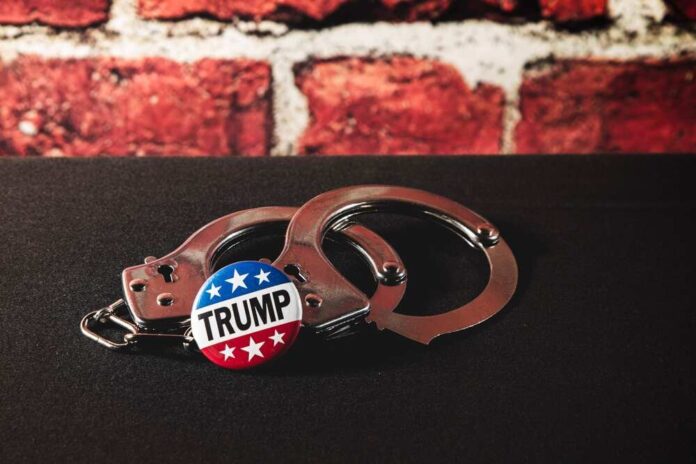
Former President Donald Trump faces sentencing on January 10 for his conviction in the New York hush money case, as a judge rejects his bid for dismissal based on presidential immunity.
At a Glance
- New York Supreme Court Judge Juan Merchan rejected Trump’s request to dismiss the hush money case
- Trump was convicted of 34 felony counts related to falsifying business records
- Sentencing is set for January 10, with the judge indicating he’s not inclined to impose jail time
- Trump’s lawyers argued the case was politically motivated and would disrupt his ability to run the country
- This marks the first time a former president will be convicted of a crime and elected to office
Judge Rejects Trump’s Immunity Claim
In a significant legal development, New York Supreme Court Judge Juan Merchan has denied former President Donald Trump’s attempt to dismiss his criminal hush money case. The ruling, which came on January 3, 2025, addresses Trump’s claims of presidential immunity and sets the stage for his sentencing on January 10.
Judge Merchan’s decision firmly establishes that the protections afforded to a sitting president do not extend to a president-elect. This clarification is crucial as Trump prepares to potentially return to the White House for a second term.
Conviction Details and Sentencing Outlook
Trump was convicted of 34 felony counts of falsifying business records, stemming from a $130,000 payment made to adult film actress Stormy Daniels. The payment was allegedly made to prevent Daniels from publicizing claims of a past affair with Trump. The case centers on how Trump accounted for reimbursing his attorney for this payment.
“This Court finds that Presidential immunity from criminal process for a sitting president does not extend to a President-elect.” – Merchan
Despite the conviction’s severity, Judge Merchan has indicated he is not inclined to sentence Trump to prison time. Instead, he has suggested the possibility of an unconditional discharge, a move that has raised eyebrows given the nature of the charges.
Trump’s Legal Team Responds
Trump’s legal team has vehemently opposed the court’s decision, arguing that the case is politically motivated and involves unlawful information leaks. They contend that proceeding with the case would disrupt Trump’s ability to run the country as president.
“Today’s order by the deeply conflicted, Acting Justice Merchan in the Manhattan DA Witch Hunt is a direct violation of the Supreme Court’s Immunity decision and other longstanding jurisprudence.” – Steven Cheung
Steven Cheung, a spokesman for Trump, criticized the ruling, calling it a violation of the Supreme Court’s immunity decision. The defense team’s arguments, including claims of juror misconduct, were noted by Judge Merchan but ultimately dismissed as unsworn and contested.
Implications for Trump’s Political Future
This case marks a historic moment in American politics, as Trump is set to become the first president to take office while convicted of felony crimes. The timing of the sentencing, just days before Trump is due to return to the White House, adds another layer of complexity to an already unprecedented situation.
While the hush money case is the only one of Trump’s four criminal indictments to go to trial, it has significant implications for his political career and the upcoming presidential election. The outcome of this case and Trump’s response to it will likely play a crucial role in shaping public opinion and potentially influencing voter decisions in the months to come.

















